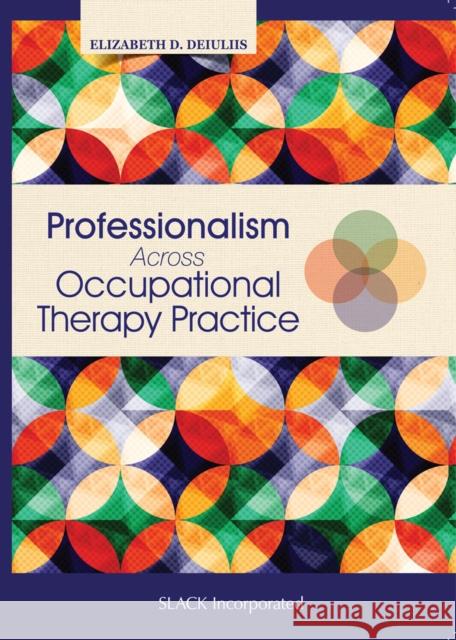Professionalism Across Occupational Therapy Practice » książka
topmenu
Professionalism Across Occupational Therapy Practice
ISBN-13: 9781630910914 / Angielski / Miękka / 2017 / 300 str.
Professionalism Across Occupational Therapy Practice
ISBN-13: 9781630910914 / Angielski / Miękka / 2017 / 300 str.
cena 293,81
(netto: 279,82 VAT: 5%)
Najniższa cena z 30 dni: 290,22
(netto: 279,82 VAT: 5%)
Najniższa cena z 30 dni: 290,22
Termin realizacji zamówienia:
ok. 16-18 dni roboczych.
ok. 16-18 dni roboczych.
Darmowa dostawa!
When most people think of professionalism, ethics, or moralism, they often think of a set of rules for distinguishing between right and wrong, such as the proverbial Golden Rule. However, the true definition of professionalism is not an easy one, and it is not necessarily black and white. In fact, it could be argued that it is often easier to describe what is not professional versus what is professional. It could also be disputed that although professionalism can be recognized when you see it, you may not necessarily be able to put your finger on what "it" is exactly.
Professionalism Across Occupational Therapy Practice by Dr. Elizabeth D. DeIuliis provides an overview of the wide-ranging knowledge, skills, and attitudes that encompass professionalism across the occupational therapy profession. While there is no formal endorsed definition of professionalism in occupational therapy practice, suggestions are provided to serve as a blueprint for use. "Professionalism in occupational therapy practice is a dynamic sophistication, exemplified by a combination of an individual's personal skill set, knowledge, behaviors, and attitudes, and the adoption of the moral and ethical values of the profession and society." Dr. DeIuliis illustrates the concept of professionalism as a unique combination of intrinsic and extrinsic qualities surrounding key constructs of ethics, responsibility, competency and behavior. Professionalism Across Occupational Therapy Practice discusses these various expectations in the academic setting, the clinic, workplace, and in general society. Professionalism Across Occupational Therapy Practice utilizes a developmental approach to teaching and learning, paralleling the Revised Bloom's Taxonomy (2001). This classification system provides a graded, holistic methodology to human teaching and learning. The concept of professionalism will be exemplified by using both a knowledge-based approach to subject matter requiring higher-level learning such as metacognition, which is a crucial component of professionalism. The chapter objectives and learning activities will challenge the reader to recall, comprehend, apply analysis, synthesize, evaluate, and create knowledge directly to their context. Instructors in educational settings can visit www.efacultylounge.com for additional materials such as informative appendices and resources include sample statements for syllabi & policy manuals, resume and CV templates, interview guidelines, professional development plans and more to be used for teaching in the classroom. Occupational Therapy practitioners at all levels, including fieldwork educators, leaders, managers and researchers will also benefit Professionalism Across Occupational Therapy Practice as it provides a synopsis of professional expectations beyond the classroom and fieldwork setting. Due to recent changes in healthcare, educational standards, and societal influence, the expectation of professionalism has been under greater scrutiny across health and social care professions. Professionalism Across Occupational Therapy Practice is the ideal text to provide a blueprint for occupational therapy students, faculty, and practitioners to fulfill our profession's potential and achieve the American Occupational Therapy Association's Vision 2025.










